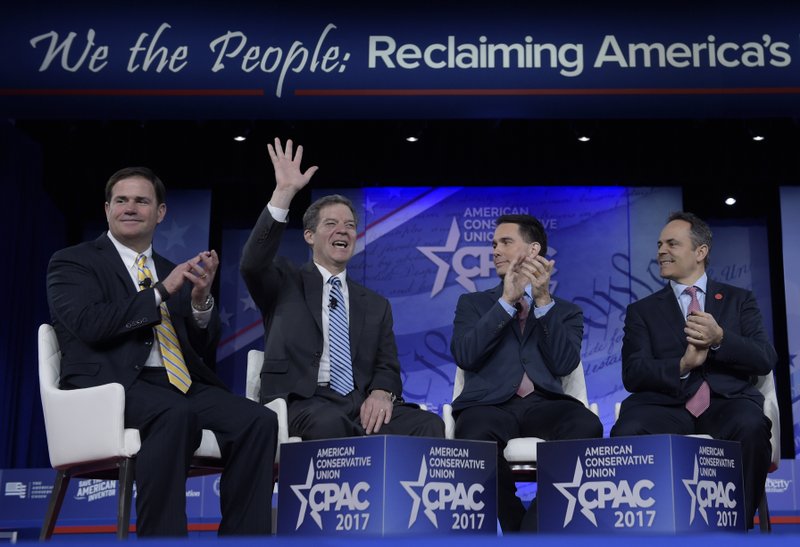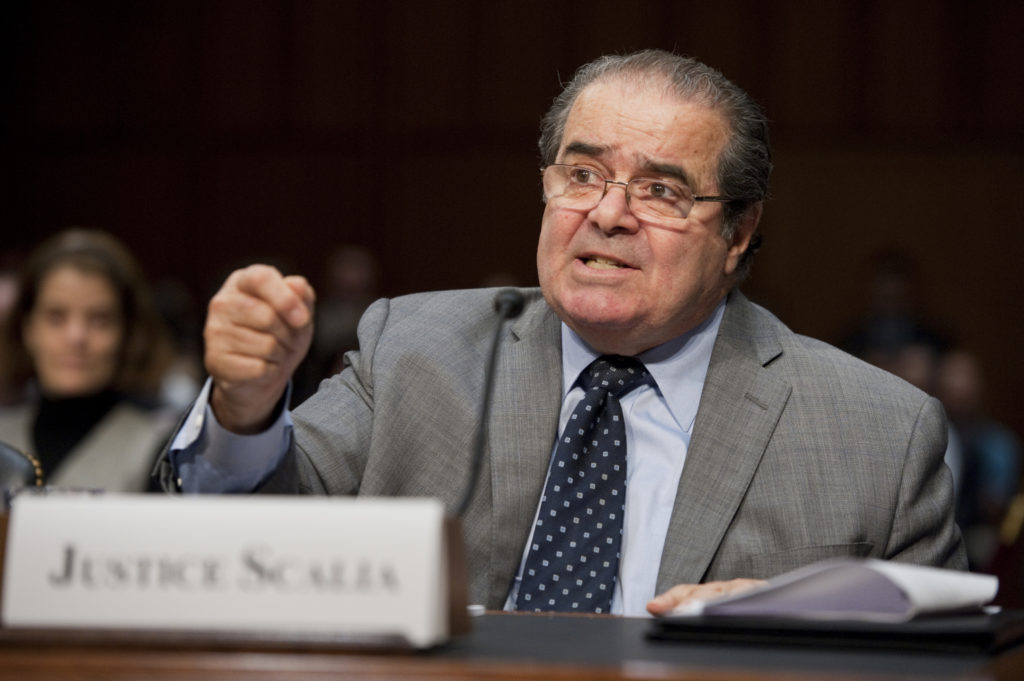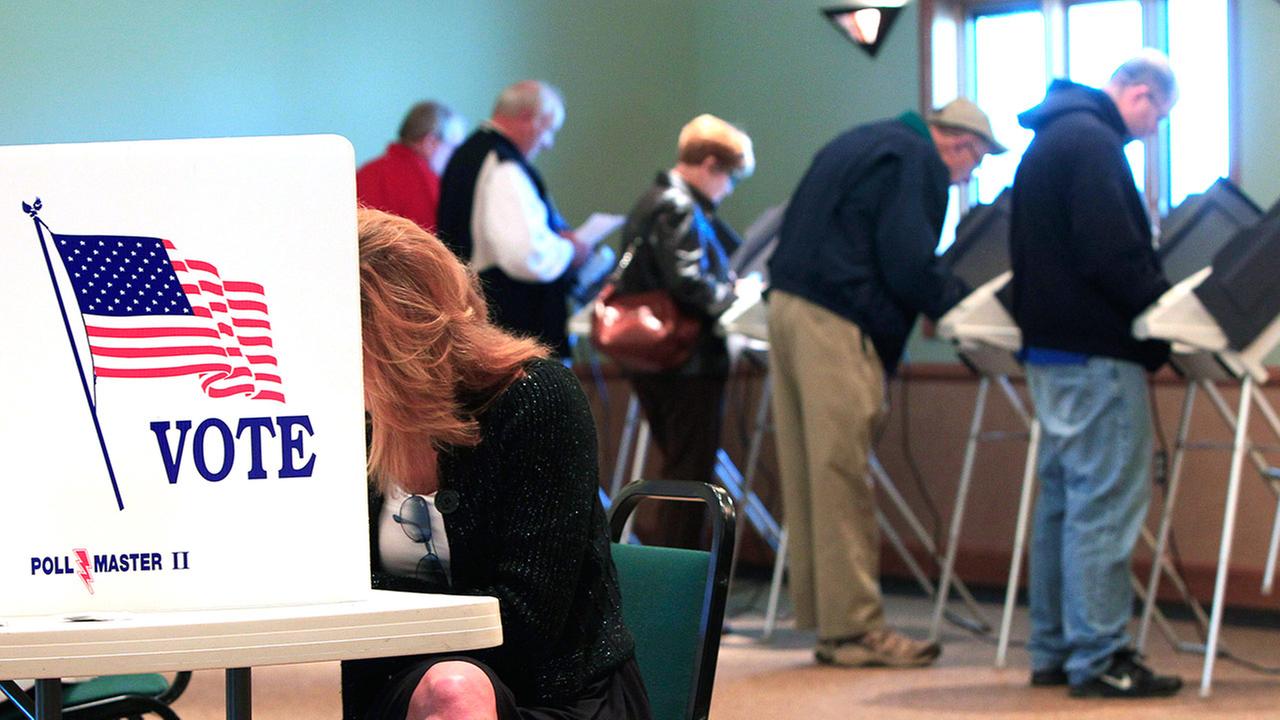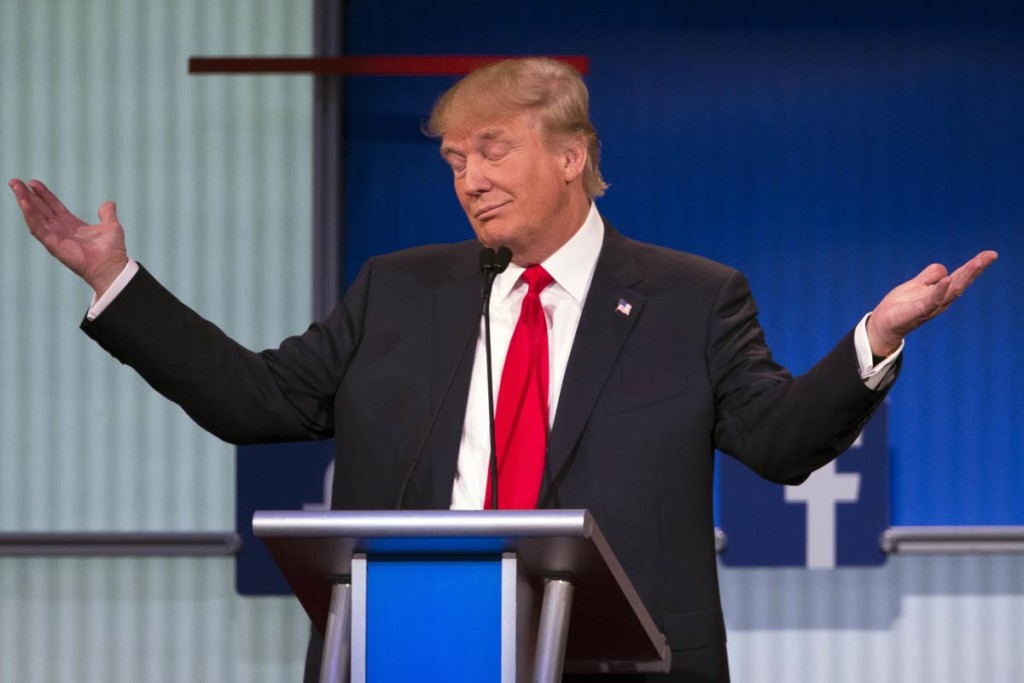Will Ainsworth: Conservatives must not leave the culture war battle to “summertime soldiers and sunshine patriots”

There are certain fundamental truths in life that neither the liberal elite nor the left-wing media nor the activists federal courts can change no matter how hard they try. For example, I know that marriage ordained by God can only occur between a man and a woman. I know that individuals should use the rest room correlating to the gender they were born with and not the one they pretend to be. And I know that tearing down all of the historic statues, memorials, and markers in the world will not erase our history – it simply prevents future generations from learning the lessons it offers. The fact of the matter is that our nation is engaged in a prolonged culture war in which the liberals extremists on the east and west coasts of the United States want to dictate the morals, values, and bedrock beliefs of everyone who lives in-between. We must not let them win. The Declaration of Independence says that our rights are endowed by our Creator and that the freedom for independence is entitled by the “Laws of Nature and Nature’s God.” I believe the Creator referenced in this revered document is the God to whom we, as Christians, devote our lives and spirits and the same God the founders worshipped when they held regular prayer and church services in the U.S. House of Representatives chamber, a practice that continued until after the Civil War. If you agree, as the founders did, that God is the basis of our nation, we need only to look at Genesis to see His original plan for marriage – one man represented by Adam, and one woman represented by Eve. Marriage is an institution created and ordained by God. It was not created by man, government, or an activist federal judge. Every society that has allowed the marriage covenant to be destroyed eventually withered away and vanished. Our society is slipping away, and it is time to take a stand. We must also hold the line against those who are working to mainstream crossdressers and transvestites by making accommodations that include allowing them to use the public restrooms of their choice. Even worse, some school systems across the nation are allowing minors who claim to be “transgender” to shower in facilities reserved for the opposite sex. Gender is not a choice. It is a fact that is determined by biology and by God, not by how masculine or feminine you feel when you wake up in the morning. Dressing like a pirate doesn’t make you a pirate, dressing like an astronaut doesn’t make you an astronaut, and dressing like the opposite sex doesn’t make you a man or a woman. For that same reason, I fully support President Donald Trump’s ban on allowing “transgender” soldiers to serve in the U.S. armed forces. The purpose of the military is to protect our national interests, repel attacks on our country, and preserve peace through strength. Accomplishing these missions becomes infinitely more difficult when military leaders must worry about G.I. Joe demanding to be treated like G.I. Jane. The culture war has prompted liberals to reach into our nation’s history and demand the removal of any statue, marker, or relic that offends their delicate sensibilities. Colleges have painted over murals of our founding fathers and other groups are vandalizing statues relating to Christopher Columbus, Robert E. Lee, and the Buffalo Soldiers, an African-American military regiment that fought against Native Americans who resisted the settlement of the Great Plains. Demanding that men and women born more than two centuries ago must strictly conform to the accepted traditions and social structures of today is patently unfair and intellectually dishonest. Because radical liberal elements are working to tear down monuments to our past and erase entire sections of our shared American history, I was proud to join my fellow lawmakers in passing the Alabama Memorial Preservation Act, which prevents the removal of any memorial that is at least 40-years-old,. If conservatives are going to win the culture war, we must elect public officials who are willing to speak the truth, abandon political correctness, and stand toe-to-toe against the liberals who attack us. I think this column proves I am willing to do all of those things. The consequences of losing the culture war are too dire to leave the battle to what Thomas Paine called “summertime soldiers and sunshine patriots.” If elected your lieutenant governor, I will shoulder the conservative fight and preserve the Alabama values that make our state such a great place to live, work, and raise our children. ••• Guntersville-Republican, State Rep. Will Ainsworth is a candidate for lieutenant governor. Elected to the Legislature in 2014, Ainsworth currently represents Alabama’s House District 27, which includes portions of Marshall, DeKalb, and Blount counties.
Conservatives learn dealing with Donald Trump can be complicated

For the past eight years, thousands of conservative activists have descended on Washington each spring with dreams of putting a Republican in the White House. They finally have one, but they are not sure he’s really conservative. With Donald Trump‘s presidential victory, the future of the conservative movement has become entwined with an unconventional New York businessman better known for his deal-making than any ideological principles. It’s an uneasy marriage of political convenience at best. Some conservatives worry whether they can trust their new president to follow decades of orthodoxy on issues like international affairs, small government, abortion and opposition to expanded legal protections for LGBT Americans — and what it means for their movement if he doesn’t. “Donald Trump may have come to the Republican Party in an unconventional and circuitous route, but the fact is that we now need him to succeed lest the larger conservative project fails,” said evangelical leader Ralph Reed, who mobilized his organization to campaign for Trump during the campaign. “Our success is inextricably tied to his success.” Trump is to address the Conservative Political Action Conference on Friday morning. Vice President Mike Pence is to speak Thursday, as are White House chief of staff Reince Priebus and senior adviser Steve Bannon. Speaking Thursday morning, White House counselor Kellyanne Conway thanked the conservatives for helping elect Trump. As conservatives met for their first big sessions Thursday at the gathering in Oxon Hill, Maryland, a Washington suburb, they heard a stream of familiar conservative rhetoric. A panel of GOP governors urged Washington Republicans, who control the levers of power for the first time in a decade, to deliver the results that Republican governors have brought to their states. “The victory is not on Nov. 8. That is an assignment for change and real reform,” said Arizona Gov. Doug Ducey, urging Trump and his allies in Congress to make good on promises to repeal “Obamacare,” enact tax reform, and cut the federal budget. “As governors, as activists, engaged citizens, we need to hold all elected leaders accountable for results in this cycle right now. We may not get this same opportunity again. We can’t squander it.” Social conservatives were thrilled by a Wednesday night decision to reverse an Obama-era directive that said transgender students should be allowed to use public school bathrooms and locker rooms matching their chosen gender identity. Trump has a somewhat tortured history with CPAC, an annual convention that’s part ideological pep talk, part political boot camp for activists. Over the past six years, he’s been both booed and cheered. He’s rejected speaking slots and galvanized attendees with big promises of economic growth and electoral victory. At times, he has seemed to delight in taunting them. “I’m a conservative, but don’t forget: This is called the Republican Party, not the Conservative Party,” he said in a May interview on ABC’s “This Week.” The tensions between Trump’s brand of populist politics and conservative ideology will be on full display at the three-day conference, which features panels like “Conservatives: Where we come from, where we are and where we are going” and “The Alt-Right Ain’t Right At All.” Along with Trump come his supporters, including the populists, party newcomers and nationalists that have long existed on the fringes of conservativism and have gotten new voice during the early days of his administration. Pro-Brexit British politician Nigel Farage will speak a few hours after Trump. Organizers invited provocateur Milo Yiannopoulos after protesters at the University of California at Berkeley succeeded in stopping his appearance on campus. But the former editor at Breitbart News, the website previously run by Bannon, was disinvited this week after video clips surfaced in which he appeared to defend sexual relationships between men and boys as young as 13. Trump “is giving rise to a conservative voice that for the first time in a long time unabashedly, unapologetically puts America first,” said Republican strategist Hogan Gidley. “That ‘America First’ moniker can very well shape this country, but also the electorate and the Republican Party and conservative movement for decades.” Trump’s early moves — including a flurry of executive orders and his nomination of federal Judge Neil Gorsuch to the Supreme Court — have cheered conservatives. They’ve also applauded his Cabinet picks, which include some of the most conservative members of Congress. The ACU awarded his team a 91.52 percent conservative rating — 28 points higher than Ronald Reagan and well above George H.W. Bush who received a 78.15 rating. But key items on the conservative wish list remain shrouded in uncertainty. The effort to repeal President Barack Obama‘s health care law is not moving as quickly as many hoped, and Republicans also have yet to coalesce around revamping the nation’s tax code. No proposals have surfaced to pursue Trump’s campaign promises to build a border wall with Mexico that could cost $15 billion or more or to buttress the nation’s infrastructure with a $1 trillion plan. Conservatives fear that those plans could result in massive amounts of new spending and that Trump’s penchant for deal-making could leave them on the wrong side of the transaction. “There is wariness,” said Tim Phillips, president of Koch brothers-backed Americans for Prosperity. But with a Republican-controlled Congress, others believe there’s no way to lose. “He sits in a room with Mitch McConnell and Paul Ryan. Is there a bad a deal to be made with those three in the room?” asked veteran anti-tax activist Grover Norquist. “A deal between those three will, I think, always make me happy.” Republished with permission of The Associated Press.
Conservatives welcome Donald Trump with delight – and wariness

For the past eight years, thousands of conservative activists have descended on Washington each spring with dreams of putting a Republican in the White House. This year, they’re learning reality can be complicated. With Donald Trump‘s presidential victory, the future of the conservative movement has become entwined with an unconventional New York businessman better known for his deal-making than any ideological principles. It’s an uneasy marriage of political convenience at best. Some conservatives worry whether they can trust their new president to follow decades of orthodoxy on issues like international affairs, small government, abortion and opposition to expanded legal protections for LGBT Americans — and what it means for their movement if he doesn’t. “Donald Trump may have come to the Republican Party in an unconventional and circuitous route, but the fact is that we now need him to succeed lest the larger conservative project fails,” said evangelical leader Ralph Reed, who mobilized his organization to campaign for Trump during the campaign. “Our success is inextricably tied to his success.” As conservatives filtered into their convention hall Wednesday for their annual gathering, many said they still have nagging doubts about Trump even as they cheer his early actions. A Wednesday night decision to reverse an Obama-era directive that said transgender students should be allowed to use public school bathrooms and locker rooms matching their chosen gender identity has thrilled social conservatives. “He’s said that on multiple occasions that he’s not a conservative, especially socially,” said Zach Weidlich, a junior at the University of South Alabama, “but my mind-set was, give him a chance, especially now that he’s elected.’” “He was the better of two evils given the choice,” added Timmy Finn. “I agree with his policies, however, I think he’s moving a little too fast.” Trump has a somewhat tortured history with the Conservative Political Action Conference, an annual convention that’s part ideological pep talk, part political boot camp for activists. Over the past six years, he’s been both booed and cheered. He’s rejected speaking slots and galvanized attendees with big promises of economic growth and electoral victory. At times, he has seemed to delight in taunting them. “I’m a conservative, but don’t forget: This is called the Republican Party, not the Conservative Party,” he said in a May interview on ABC’s “This Week.” Matt Schlapp, chairman of the American Conservative Union, which hosts CPAC, said Trump’s aggressive style is more important than ideological purity. “Conservatives weren’t looking for somebody who knew how to explain all the philosophies. They were actually looking for somebody who would just fight,” he said. “Can you think of anybody in America who fits that bill more than Donald Trump?” Trump is to address the group Friday morning. Vice President Mike Pence is to speak Thursday as are White House chief of staff Reince Priebus and senior advisers Steve Bannon and Kellyanne Conway. The tensions between Trump’s brand of populist politics and conservative ideology will be on full display at the three-day conference, which features panels like: “Conservatives: Where we come from, where we are and where we are going” and “The Alt-Right Ain’t Right At All.” Along with Trump come his supporters, including the populists, party newcomers and nationalists that have long existed on the fringes of conservativism and have gotten new voice during the early days of his administration. Pro-Brexit British politician Nigel Farage will speak a few hours after Trump. Organizers invited provocateur Milo Yiannopoulos after protesters at the University of California at Berkeley protested to stop his appearance on campus. But the former editor at Breitbart News, the website previously run by Bannon, was disinvited this week after video clips surfaced in which he appeared to defend sexual relationships between men and boys as young as 13. Trump “is giving rise to a conservative voice that for the first time in a long time unabashedly, unapologetically puts America first,” said Republican strategist Hogan Gidley. “That ‘America First’ moniker can very well shape this country, but also the electorate and the Republican Party and conservative movement for decades.” Trump’s early moves — including a flurry of executive orders and his nomination of federal Judge Neil Gorsuch to the Supreme Court — have cheered conservatives. They’ve also applauded his Cabinet picks, which include some of the most conservative members of Congress. The ACU awarded his team a 91.52 percent conservative rating — 28 points higher than Ronald Reagan and well above George H.W. Bush who received a 78.15 rating. But key items on the conservative wish list remain shrouded in uncertainty. The effort to repeal President Barack Obama‘s health care law is not moving as quickly as many hoped, and Republicans also have yet to coalesce around revamping the nation’s tax code. No proposals have surfaced to pursue Trump’s campaign promises to build a border wall with Mexico that could cost $15 billion or more or to buttress the nation’s infrastructure with a $1 trillion plan. Conservatives fear that those plans could result in massive amounts of new spending and that Trump’s penchant for deal-making could leave them on the wrong side of the transaction. “There is wariness,” said Tim Phillips, president of Koch-brothers-backed Americans for Prosperity. But with a Republican-controlled Congress, others believe there’s no way to lose. “He sits in a room with Mitch McConnell and Paul Ryan. Is there a bad a deal to made with those three in the room?” asked veteran anti-tax activist Grover Norquist. “A deal between those three will, I think, always make me happy.” Republished with permission of The Associated Press.
Justice Samuel Alito rallies conservatives in tribute to Antonin Scalia

Supreme Court Justice Samuel Alito issued a rallying cry to conservatives Thursday in the wake of newfound strength following Donald Trump‘s election. Alito told the Federalist Society conference of conservative lawyers, judges and legal thinkers that religious freedom and gun rights are among “constitutional fault lines,” important issues at stake in the federal courts. He did not mention the election or the vacancy that was created by the death last February of Justice Antonin Scalia – an opening Trump will now fill. Alito paid tribute to Scalia, a longtime colleague and conservative ally in high court battles on hot-button social and political issues. Scalia, an early adviser to the Federalist Society and a hero to many of its 40,000 members, is sorely missed on the court, Alito said at the group’s meeting in Washington. “We are left to ask ourselves WWSD,” what would Scalia do, Alito said. The lettering is a play on the phrase “WWJD,” for what would Jesus do. The court has been operating with eight justices since Scalia’s death because Senate Republicans blocked action on President Barack Obama’s nomination of Judge Merrick Garland. Alito, Justice Clarence Thomas and nine judges on Trump’s list of potential high court picks were on the schedule at the conference, which has turned into an impromptu job fair for spots in the new administration. “The mood has changed. Everyone is going to be thinking, ‘Maybe someone here is going to be filling Justice Scalia’s shoes,’” said Abbe Gluck, a Yale Law professor who is not a member of the group but will participate in the conference. The Federalist Society got its start on college campuses when Ronald Reagan was in the White House. It was conceived as a way to counter what its members saw as liberal domination of the nation’s law-school faculties. Its influence was pronounced during the presidency of George W. Bush, when its leaders helped rally support for Senate confirmation of Alito and Chief Justice John Roberts. The group was so successful that it spawned copycat liberal organizations. Speaking at a Federalist Society event in the Bush years was akin to an out-of-town preview of a Broadway show for conservative lawyers looking for administration jobs or judgeships, author Mark Tushnet has written. Over the past eight years, the group provided a forum for opponents of President Barack Obama‘s court choices and policies, although the Federalist Society itself does not endorse candidates or take policy positions. Some of its leaders backed Senate Majority Leader Mitch McConnell‘s refusal to act on Garland’s nomination. That political strategy paid unexpected and huge dividends for conservatives with Trump’s election. The society’s star again appears to be on the rise. “Anytime there’s a major shift in the power of government, it’s an enormous opportunity for what is probably the collection of the smartest, most talented and most publicly minded lawyers in the country to roll up their sleeves and help advance the cause of constitutional government,” said Leonard Leo, the group’s executive vice president. Leo met with Trump in New York on Wednesday and said afterward that Trump has yet to pare down his long list of names of Supreme Court hopefuls. Among those candidates are nine who will take part in panel discussions in the next few days: state Supreme Court Justices Allison Eid of Colorado, Joan Larsen of Michigan, David Stras of Minnesota and Don Willett of Texas, and federal appellate judges Steven Colloton, Thomas Hardiman, Raymond Kethledge, William Pryor and Diane Sykes. The group says 90 percent of its money comes from individuals and foundations, the rest from corporations. Charles and David Koch, Google and Microsoft are among donors who gave $100,000 or more, according to the society’s annual report for 2015. Trump campaign manager Kellyanne Conway and her husband, George, gave between $50,000 and $100,000. George Conway is a New York lawyer and Federalist Society member. When Scalia and Thomas were criticized for speaking at private dinners hosted by Charles Koch, the court said that travel and lodging expenses were paid not by Koch but by the Federalist Society. The close ties between the group and federal judges have frustrated Democratic officials and liberal interest groups. During the Bush years, Democratic Sen. Dick Durbin of Illinois complained that membership in the Federalist Society was “the secret handshake” of Bush court nominees. Nan Aron, the president of Alliance for Justice, said the Federalist Society “promotes a way of looking at the law which upholds the rights of the powerful and the wealthy.” Aron said it is “regrettable that so many nominees on Trump’s list are going to attend Federalist Society events.” Yet a conservative legal scholar who has been critical of Trump said the group’s involvement in identifying candidates for judgeships and other jobs in the new administration is not something to fear. “In fact, if the Federalist Society does play a role in identifying the president-elect’s nominees, that could be comforting to some who have reservations about Donald Trump’s administration, because such a role would suggest, at least in this area, continuity with longstanding, mainstream Republican practice,” University of Notre Dame law professor Richard Garnett said in an email. Republished with permission of the Associated Press.
Email Insights: Rainy Day Patriots’ to host open candidate forum Thursday 7/21

Birmginham area residents are invited to an open candidate forum at the Red Lobster in Vestavia Hills Thursday night hosted by the Rainy Day Patriots (RDP) tea party group. Run by Birmingham RDP leader Dawn Ray, the forum will feature candidates from the upcoming municipal elections for mayor and council, and is open to the local candidates, RDP members as well as guests. The upcoming election will be held Aug. 23, and a runoff, if necessary, will be held Oct. 4. View the invitation below: Dear Friends: To: Local Candidates, RDP Members, and Guests What: Rainy Day Patriots’ Open Candidate Forum Where: Red Lobster, 1030 Montgomery Hwy, Vestvia Hills 35216 Date: Thursday, July 21st Time: Meeting begins at 6 p.m. Feel free to come earlier to eat. RSVP: Not required. Time allotted for candidates determined by number candidates who show up.
Darryl Paulson: The zenith of Donald Trump

Here are two critical points concerning Donald Trump. First, he is barely a Republican. Second, he is certainly not a conservative. It is obvious that Trump is leading the field of 17 Republican candidates. His support in four recent polls all had Trump in first place, ranging from a low of 21 percent in the Bloomberg poll to 26 percent in both the Fox poll and the Monmouth University poll. That’s the good news for Trump. The bad news is that Trump may move up a few points, but he has reached the zenith of his support. A recent Economist/YouGov.com survey found that about a third of Americans had a favorable view of Trump and 58 percent had an unfavorable view. Trump will soon be taking the “down” elevator in public opinion polls. The same poll found that when the numbers were broken down by age, race, region, gender and income, Trump’s unfavorables were substantially higher in every category but one: voters 65 and older. His support among African-Americans, Hispanics and women is almost nonexistent. A Rasmussen Poll released Tuesday found strong evidence that the Trump decline may have already started. A survey of 651 likely Republican voters conducted between Sunday and Monday, found that support for Trump has declined from 24 percent to 17 percent in the past 10 days. Trump’s support among men has fallen from 30 percent to 19 percent, and support from women has dropped from 22 percent to 14 percent. Trump is at the top right now because he is perceived as the non-politician in the age where Americans of all political stripes hate the establishment. Voters are frustrated and alienated with politics and politicians, and Trump has successfully appealed to them. Trump’s supporters see him as the outsider who will shake-up the system, much like those who supported George Wallace and Ross Perot were viewed as political mavericks. Trump’s one major contribution to the presidential race us that he has demonstrated to the other candidates that the voters do not like them and their hollow promises one bit. Trump will falter for many reasons. As Larry Thornberry has written in The American Spectator, a leading conservative publication, Trump is “an arrogant, self-satisfied, crude and pompous windbag and bully who grossly overestimates his knowledge, his successes, and, not the least, his charm.” He attacks any critic as “stupid” or “loser,” but has a political glass jaw when he is criticized. Trump will lose because he is running as a Republican this year simply because he feels like it. He quit the party in 1999 saying that “Republicans are just too crazy right.” He then hired Roger Stone, who resigned as Trump’s campaign manager a few days ago, to consider a 2000 run as a Reform Party candidate. In 2009, Trump was back as a Republican. The next year he decided he was an independent and then in 2012, he was once again a Republican. His moving from one political party to another, all for political expediency, might remind Florida voters of Gov. Charlie Crist. Trump is the Bernie Sanders of the Republican Party. Both Trump and Sanders are running to lead a party that neither really calls home and that both have spent more time disparaging than uplifting it. During most of the first decade of the 21st century, the vast majority of the $1.5 million that Trump donated to political candidates went to Democrats, including contributions to Nancy Pelosi and $100,000 to the Clinton Foundation. When asked about his contributions to both Democrats and Republicans, Trump justified them by saying, “When you give, they do whatever you want them to.” I am sure that will appeal to Americans who hate politics for precisely that reason. Trump will lose because he is not a conservative in a party that is dominated by conservatives. In a 2000 book Trump called himself a “liberal” on health care. He supported a single-payer health plan that conservatives loathe, and he was once pro-choice, although he now says he is against abortion. A few years ago, Trump supported a 14.25 percent mega-tax on those making more than $10 million. Now he wants to cut income taxes in half. As Bruce Bartlett, former aide to U.S. Rep. Jack Kemp, said of Trump: “He is nothing if not inconsistent. He’s been on every side of every issue from every point of view as far as I can tell.” If you have not noticed, Trump is also delusional. He calls immigrants “rapists and murderers,” and then says he will win the Hispanic vote. He insults conservative icon Megyn Kelly for attacking him unfairly and having blood coming out her eyes and “whatever.” Trump also believes he will win the votes of women. Republicans, conservatives and Americans deserve better than Trump. “Donald, you’re fired!” Darryl Paulson is Professor Emeritus of Government at the University of South Florida St. Petersburg and resides in Palm Harbor.


